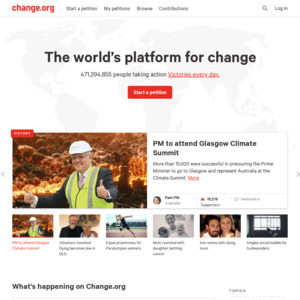Came across this article this morning regarding changes to Medicare charges that will be implemented in the coming weeks on 19th Jan.
http://www.smh.com.au/federal-politics/political-news/patien…
Thought it was over when they couldnt pass the $7 GP fee through the Senate - so here they are by passing it in another way.
The new changes basically mean:
- If your doctor bulk bills they will absorb the pay cut (sincerely doubt this). The article says "It will prompt many doctors to stop bulk-billing shorter consultations because the payment does not meet their costs"
- If your doctor charges a fee you will receive $16.95 rebate. Depending on what your GP charges this will change your "out of pocket" or gap" fee
I believe this new fee structure will increase waiting times at the GP or place additional pressure on local hospitals (for those wanting to avoid the fee). Can anything be done to stop these changes?
EDIT: If everyone could please sign this petition, that would be great. We need to get the word out!
https://www.change.org/p/the-hon-sussan-ley-quit-targeting-g…
EDIT: So the private industry's response to this is to increase the cost of PHI for everyone by 6% a year (triple inflation) so that more people rely on the public system and don't take it up.
http://www.smh.com.au/business/why-private-health-insurance-…

@Incrediho:
Where did you get the take home salary amounts from? And does it take into account urban/rural, procedural/non-procedural, after-hours/on-call, private/bulkbilling? Rather than the range - what's the median + standard deviation?
I spoke with a GP today who as a final year GP registrar in 2014, her take home for full-time in a busy bulk billing country practice was $66 000. I will keep asking around for real numbers rather than stats. I'm finding it's not matching up - supposed salaries vs actual salaries..
I don't think it makes sense that just because a job has more job satisfaction/respect/stability/flexibility that it means it should earn less.
Don't doctors, dentists and vets have the highest suicide rates compared to the general population anyway?
I think that it is perfectly correct to want doctors to enter the profession because of a passion for health. But I just really don't think a lower salary will result in more passionate doctors, but perhaps more burnt out ones.